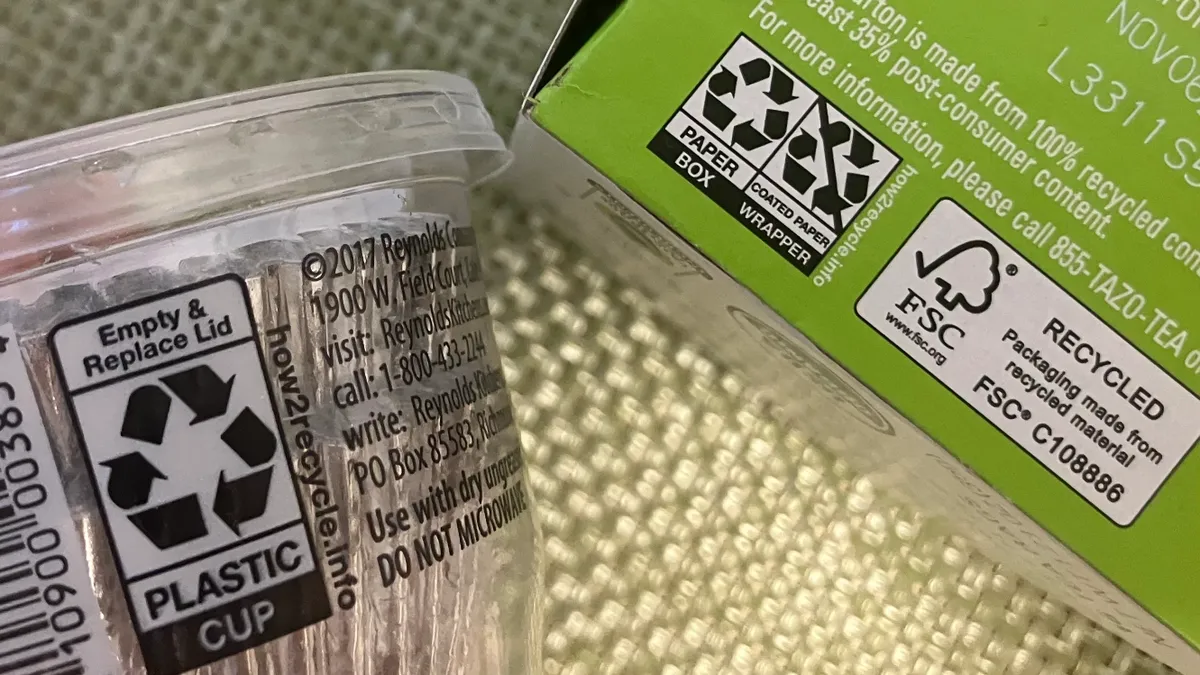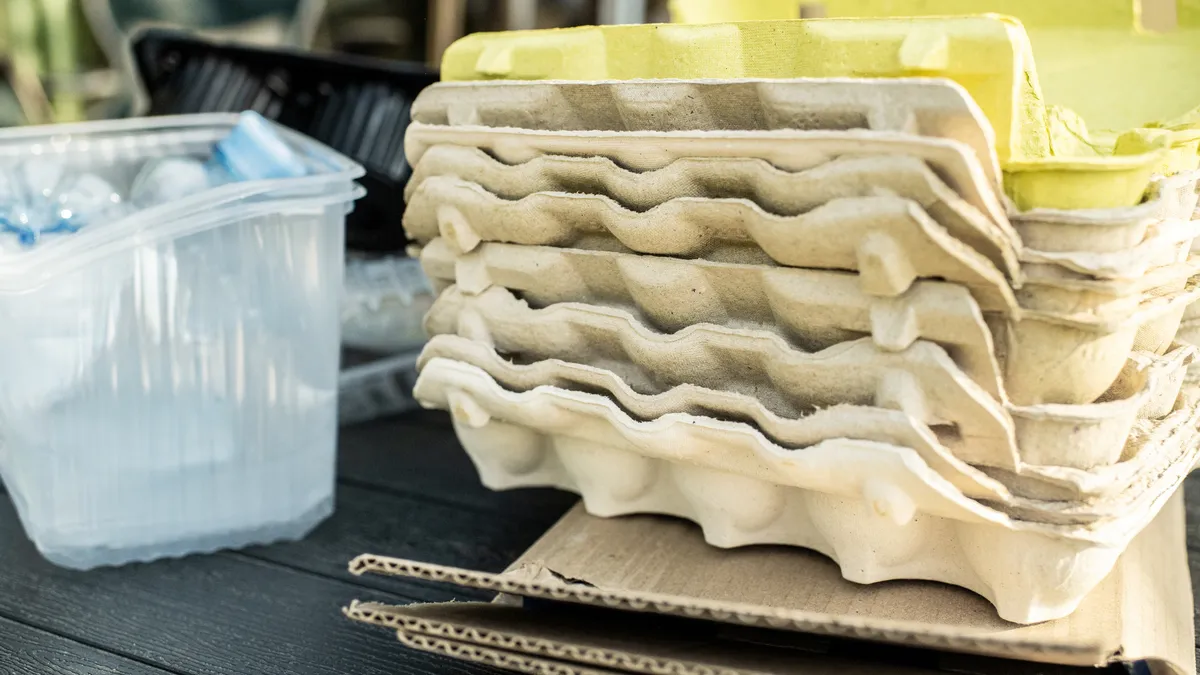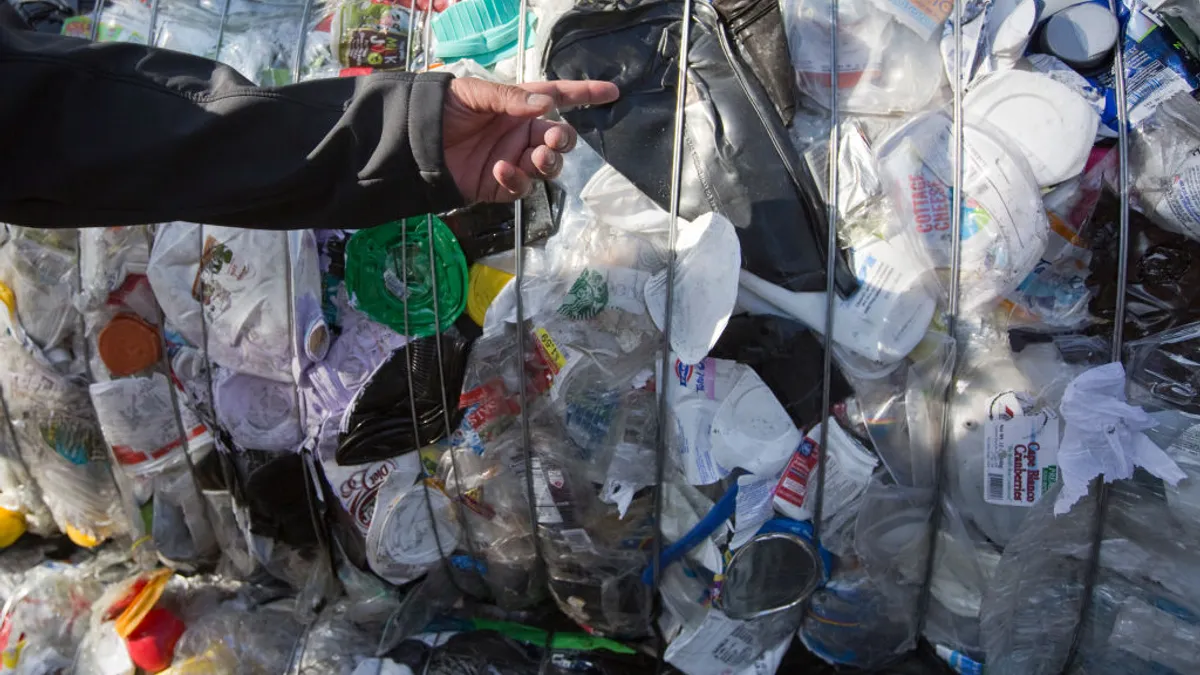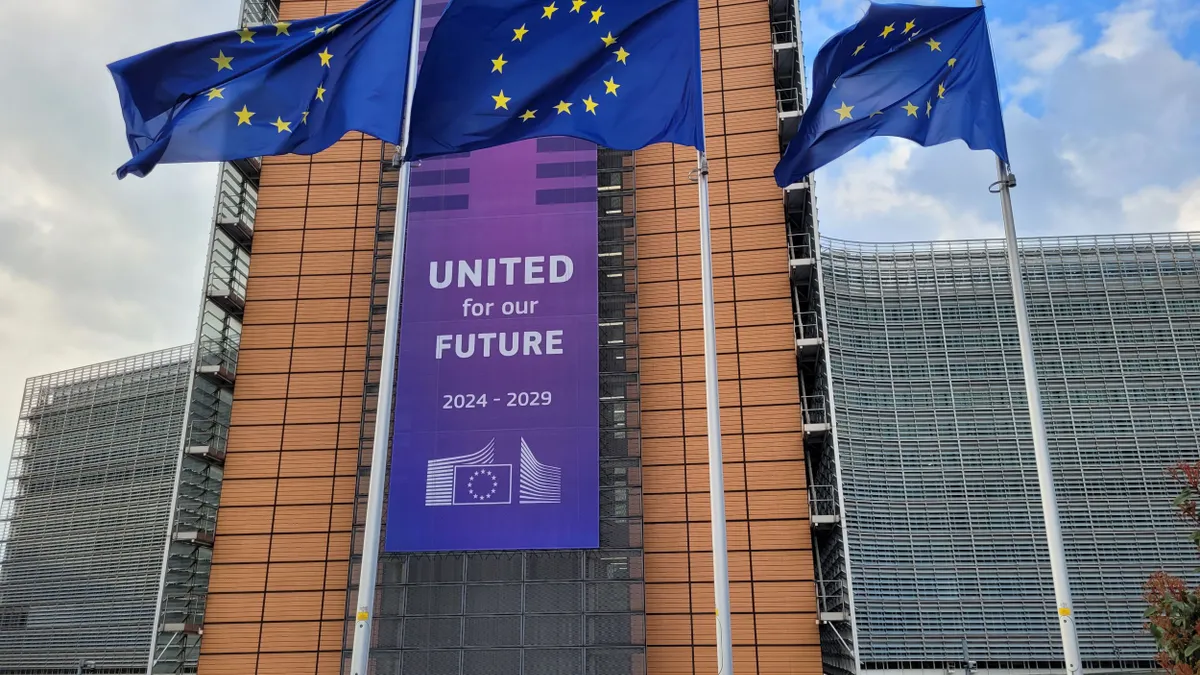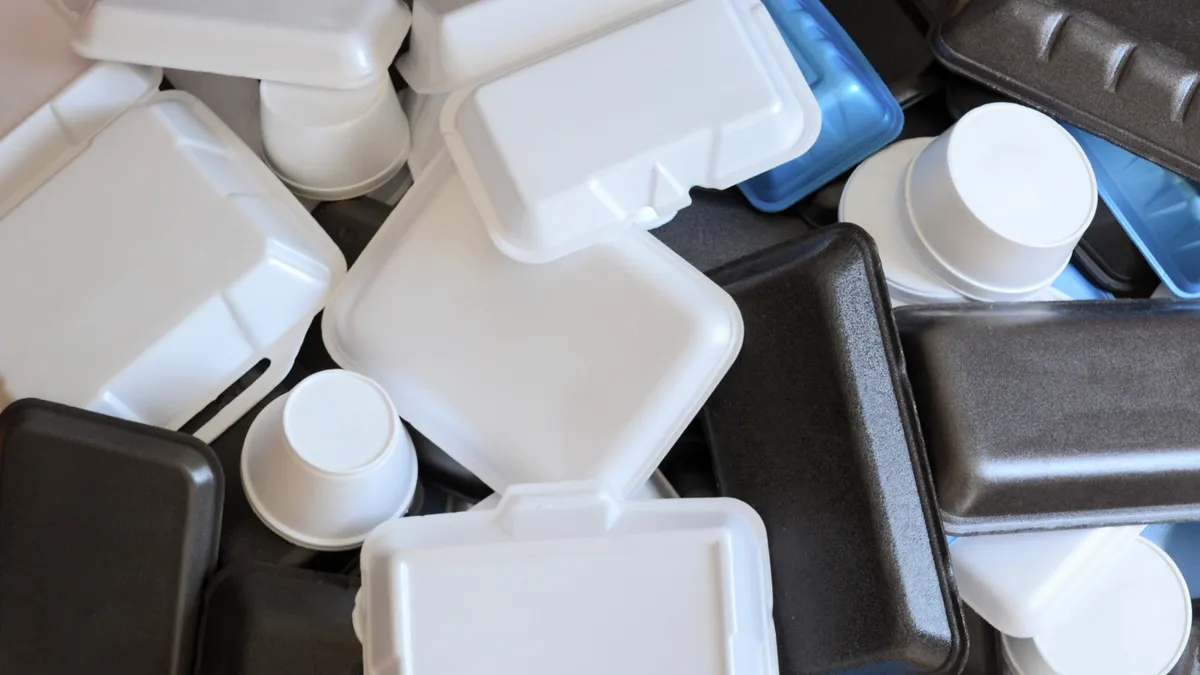It’s a challenging time for brands to discern what types of on-pack messaging are both allowable and optimal for consumers. The Federal Trade Commission is still reviewing its guidance for environmental marketing claims, know as the Green Guides, while states like California have pursued packaging labeling regulations of their own.
Representatives of three widely used informational and instructional labels – How2Recycle, SmartLabel and BPI Certification – weighed in on the current environment during a virtual event led by Ameripen on Tuesday.
Treat marketing and recycling instructions separately
There is a distinct difference between marketing claims and recycling instructions, said John Hewitt, senior vice president of packaging and sustainability and state affairs at the Consumer Brands Association. “I know sometimes the lawyers will argue with you about that,” he said.
Consumer Brands operates the SmartLabel program, a QR code label that brands can add to packages to link to nutrition, recycling and other types of information.
There needs to be work done on the legislative side, he said, “not because How2Recycle or BPI or SmartLabel aren't doing their job; they are,” but “there's been this kind of blending of marketing claims and recycling instructions, somehow they've been conflated.” On-pack or linked recycling information is important to ensure clean streams and meet circularity commitments, he said.
“They do two different things. They're physically in two different places on a package. Marketing claims tend to be on the front — that's information that helps consumers make a decision, largely about whether or not to purchase an item,” he said. “Recycling instructions are on the back ... They are end-of-life management.”
“That instruction is no different than ‘add water, add egg, bake at 350,’ right? What do I do with the product — that information’s on the package, that has never been mistaken as a marketing claim.”
Legislation could help ensure clear labeling systems with consistent approaches to environmental marketing claims and recycling instructions, he explained.
Labels matter to consumers as well as composters
The Biodegradable Products Institute has certified more than 36,000 compostable products. Good labeling for compostable products is essential both for users and processors, explained Alex Truelove, legislation and advocacy manager at BPI.
“In particular with compost systems, if this is going to work, products have to be well-labeled not just for the consumer but for the composter to be able to identify what's in their stream, what belongs in the stream, versus what's a contaminant,” Truelove said. “So we're going to continue to support good labeling moving forward, and hopefully [provide] guidance to members as far as navigating legislation and maybe dealing with some challenges in California or future FTC guidance.”
Truelove also noted a few states have moved forward with legislation related to prohibiting misleading terminology, and “a new frontier” is addressing potential color requirements “in terms of being able to distinguish products that are compostable from non-compostable,” he said.
Even in uncertainty, brands still have a responsibility to guide consumers
Legislation can be a tool to support consumer education, noted Paul Nowak, executive director of GreenBlue. The nonprofit oversees the How2Recycle labeling program, which has been adopted by hundreds of brands, retailers and manufacturers. It’s currently in the process of updating the design of this on-pack label system and encouraging brands to also adopt QR codes to offer consumers the most up-to-date and detailed local recycling information.
Brands’ concern right now with offering recycling guidance is understandable due to lack of clarity, Nowak acknowledged.
However, “please choose courage over fear,” he implored.
“As a brand, the fact that you think it might be OK, because there's litigation, to not give an instruction to a consumer, is a huge step backwards,” he said. “It's your responsibility to give an instruction to consumers.”
“We're in a messy time. No one's disagreeing with that. But backtracking and then taking away what you've already shown to consumers is not the way forward,” he said.
Further, Nowak said his hope with legislation is that there’s new clarity on the term “recyclable,” with real definitions and data.
“I keep telling brands, we're in the messy middle ... but I don't believe the answer is removing what I think is your responsibility today if you're selling a product,” he said.



